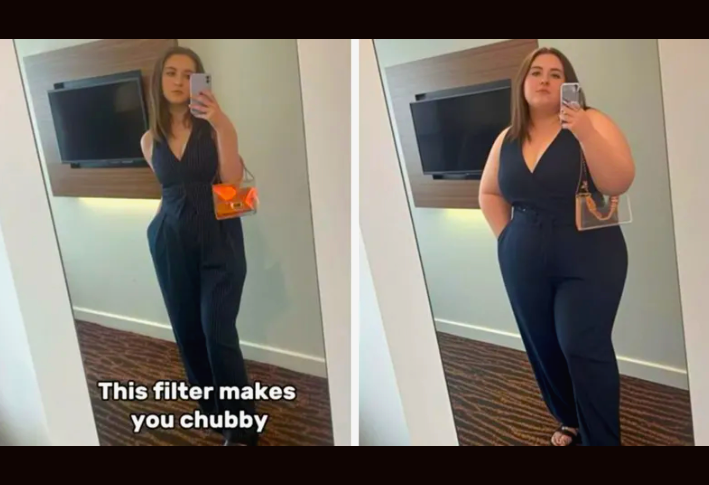By Jessica Sherwood, BBC Social News
Filters – which use AI to manipulate a person’s appearance – are common on TikTok.
Many are harmless – for example one popular trend makes it appear as if a person was made out of Lego.
Some of the most popular videos using the filter have been liked tens of thousands of times.
For the purpose of this article, I used the filter on myself. I felt incredibly uncomfortable.
As someone who is very body positive and has struggled with their self-image in the past, using it couldn’t be further away from how I personally use social media and I was unhappy that TikTok pushed it to me in the first place.

This filter appeared on my TikTok “For You” page the other day despite me not engaging with any weight-related or health content.
After I watched the video and read the comments, TikTok began to suggest similar videos from other people using the filter, and even another where AI can turn you thinner.
Thankfully it also began to start showing me creators who were criticising the trend, some of whom we’ve spoken to for this article.
AI images and filters have become commonplace on TikTok and quickly accepted to be used for fun – the same way some Gen-Zs and Millennials might remember Snapchat filters.
But filters like these, although they may seem fun, can be very damaging to someone’s mental health and encourage them to compare themselves not only to others, but an unrealistic version of themselves.













